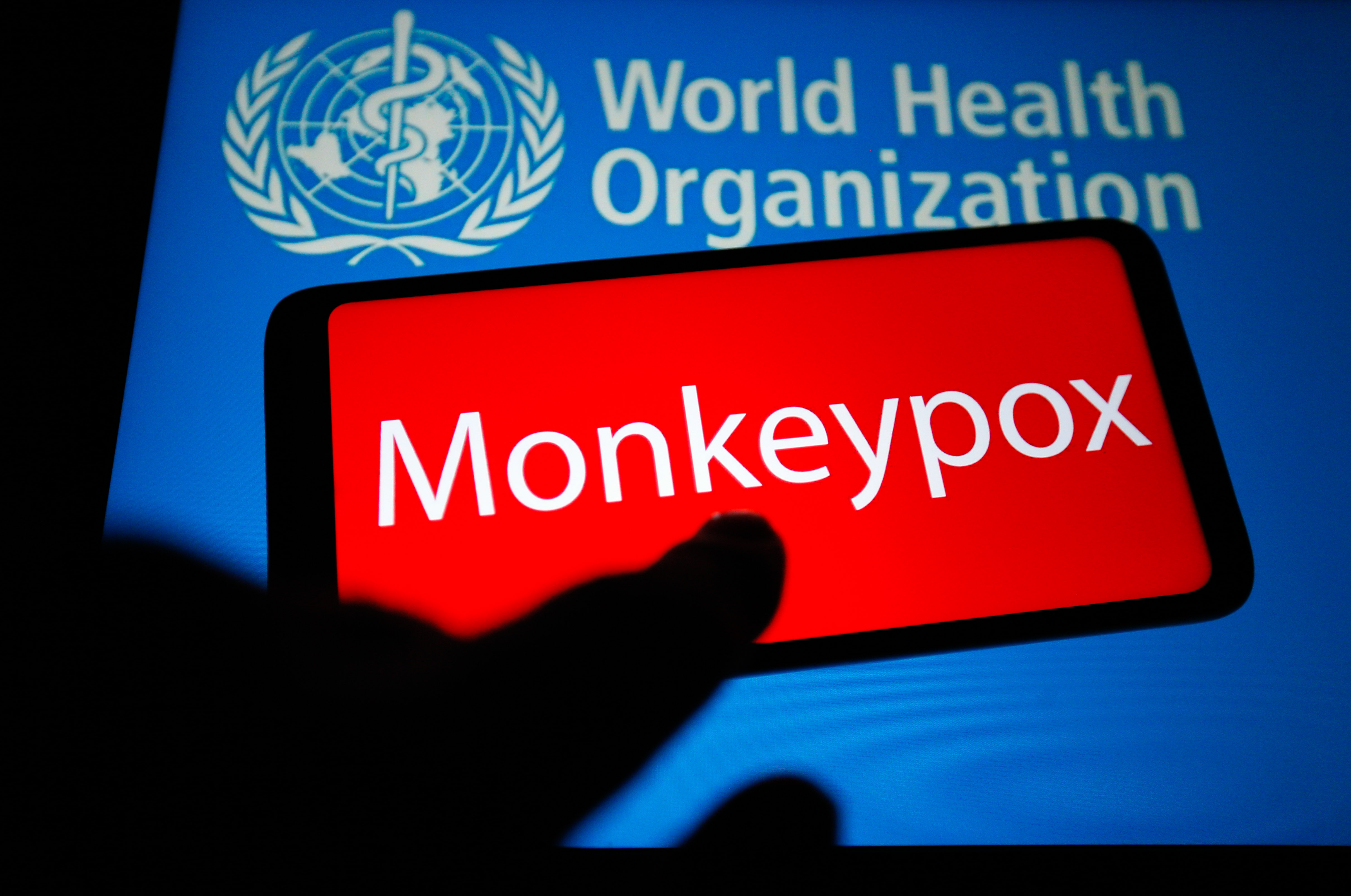WHO to rename monkeypox after scientists call it 'discriminating and stigmatizing'


A free daily email with the biggest news stories of the day – and the best features from TheWeek.com
You are now subscribed
Your newsletter sign-up was successful
World Health Organization Director-General Tedros Adhanom Ghebreyesus announced that the monkeypox virus is about to get a new name, following accusations of it being "discriminatory and stigmatizing," Time reported.
The swollen-lymph node-causing virus will be renamed after several global scientists pushed for the change, said WHO. The claims of discrimination stemmed from the false narrative about monkeypox being linked to Africa, which scientists outlined in a letter published on June 10.
In their letter, the researchers argued that "[t]he most obvious manifestation of this is the use of photos of African patients to depict the pox lesions in mainstream media in the global north."
The Week
Escape your echo chamber. Get the facts behind the news, plus analysis from multiple perspectives.

Sign up for The Week's Free Newsletters
From our morning news briefing to a weekly Good News Newsletter, get the best of The Week delivered directly to your inbox.
From our morning news briefing to a weekly Good News Newsletter, get the best of The Week delivered directly to your inbox.
One spokesperson added that the current name was not within the guidelines of the organization. Despite the virus being named in 1958 when it was first identified "in colonies of monkeys," People explains there are still geographical areas and animal names that WHO recommends avoiding.
The symptoms of the virus include fever, headache, muscle aches, chills, and fatigue followed by a rash that spreads from the face to other body parts — and typically is contracted by direct contact with bodily fluids. The death rate in Congo is about 1 in 10 people who catch it, whereas, in the United States, no one has died from monkeypox. Back in 2003, the U.S. saw "an outbreak with 47 cases," the Centers for Disease Control and Prevention reported.
A free daily email with the biggest news stories of the day – and the best features from TheWeek.com
Kelsee Majette has worked as a social media editor at The Week since 2022. In 2019, she got her start in local television as a digital producer and fill-in weather reporter at NTV News. Kelsee also co-produced a lifestyle talk show while working in Nebraska and later transitioned to 13News Now as a digital content producer.
-
 5 blacked out cartoons about the Epstein file redactions
5 blacked out cartoons about the Epstein file redactionsCartoons Artists take on hidden identities, a censored presidential seal, and more
-
 How Democrats are turning DOJ lemons into partisan lemonade
How Democrats are turning DOJ lemons into partisan lemonadeTODAY’S BIG QUESTION As the Trump administration continues to try — and fail — at indicting its political enemies, Democratic lawmakers have begun seizing the moment for themselves
-
 ICE’s new targets post-Minnesota retreat
ICE’s new targets post-Minnesota retreatIn the Spotlight Several cities are reportedly on ICE’s list for immigration crackdowns
-
 Trump HHS slashes advised child vaccinations
Trump HHS slashes advised child vaccinationsSpeed Read In a widely condemned move, the CDC will now recommend that children get vaccinated against 11 communicable diseases, not 17
-
 FDA OKs generic abortion pill, riling the right
FDA OKs generic abortion pill, riling the rightSpeed Read The drug in question is a generic version of mifepristone, used to carry out two-thirds of US abortions
-
 RFK Jr. vaccine panel advises restricting MMRV shot
RFK Jr. vaccine panel advises restricting MMRV shotSpeed Read The committee voted to restrict access to a childhood vaccine against chickenpox
-
 Texas declares end to measles outbreak
Texas declares end to measles outbreakSpeed Read The vaccine-preventable disease is still spreading in neighboring states, Mexico and Canada
-
 RFK Jr. shuts down mRNA vaccine funding at agency
RFK Jr. shuts down mRNA vaccine funding at agencySpeed Read The decision canceled or modified 22 projects, primarily for work on vaccines and therapeutics for respiratory viruses
-
 Measles cases surge to 33-year high
Measles cases surge to 33-year highSpeed Read The infection was declared eliminated from the US in 2000 but has seen a resurgence amid vaccine hesitancy
-
 Kennedy's vaccine panel signals skepticism, change
Kennedy's vaccine panel signals skepticism, changeSpeed Read RFK Jr.'s new vaccine advisory board intends to make changes to the decades-old US immunization system
-
 Kennedy ousts entire CDC vaccine advisory panel
Kennedy ousts entire CDC vaccine advisory panelspeed read Health Secretary RFK Jr. is a longtime anti-vaccine activist who has criticized the panel of experts
